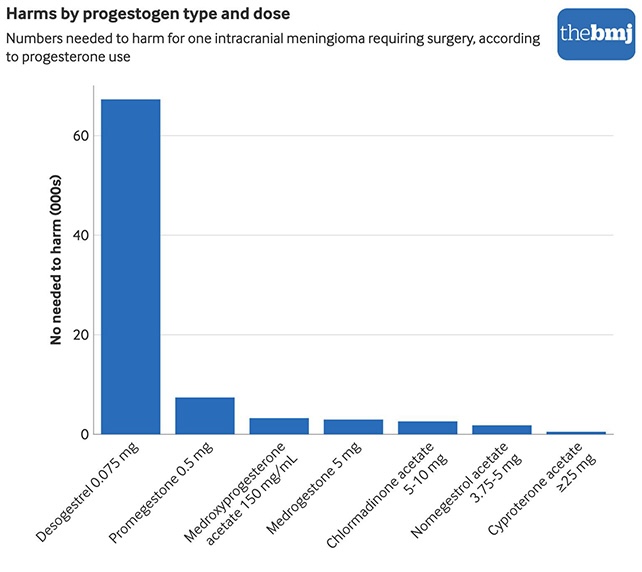The contraceptive pill desogestrel has been linked to a small increase in the risk of developing an intracranial meningioma brain tumor in new research – though the risk is relatively low, and only appears with long-term desogestrel use.
These tumors are usually non-cancerous, but can lead to neurological problems, and sometimes require surgery. Meningioma has previously been linked to synthetic progestogen drugs, like desogestrel, which are designed to mimic the natural hormone progesterone that is important in the menstrual cycle and pregnancy.
The researchers, led by a team from the French National Agency for Medicines and Health Products Safety, wanted to build on those earlier studies to check the risk for desogestrel.
The study estimated that among women using desogestrel continuously for more than five years, 1 in 17,331 would develop a tumor that requires surgery. Under five years, the risk is 1 in 67,300.
That's relatively small, and the way the study is structured means it doesn't show direct cause and effect. However, the study team is recommending caution with extended use of this contraceptive pill, and regular testing for any brain issues.
"Monitoring for meningioma should focus on women who have used desogestrel 75 micrograms for more than five continuous years, in whom we found a small risk of meningioma," write the researchers in their published paper.
"As with the other progestogens, risk increased with duration of use and after use of a progestogen of known associated increased risk."

The findings are based on records of 92,301 women, with an average age of 59.7 years. Each of the 8,391 women in that group who had undergone surgery for a meningioma were compared to 10 women without tumors, matched by age and location.
As well as noting the small risk increase, the researchers also observed that the association disappeared after a year without taking desogestrel. That's good news, and may help with future treatments.
"Although direct evidence is still lacking, stopping treatment when desogestrel-related meningioma is diagnosed may preclude the need for surgery as regression of meningioma can be expected in line with cessation of any other progestogen-induced meningioma," neurosurgeon Gilles Reuter from the Centre Hospitalier Universitaire de Liège in Belgium, who wasn't involved in the study, writes in an accompanying editorial.
In the same analysis the researchers also looked at levonorgestrel, another synthetic progestogen, but in this case the data showed no increased risk – even when it was used for more than five years.
That means taking levonorgestrel may be a better option for older women than some of the other contraceptive pills previously linked to meningioma risk – though as always, it's important that any decisions about drugs and treatment are made in consultation with health professionals.
"Generally speaking, I do not believe this study should raise cause for alarm but merely drive discussion by women with their doctor around what is the best contraceptive option for them," says obstetrician and gynecologist Gino Pecoraro, from the University of Queensland in Australia, who wasn't involved in the study.
The research has been published in The BMJ.